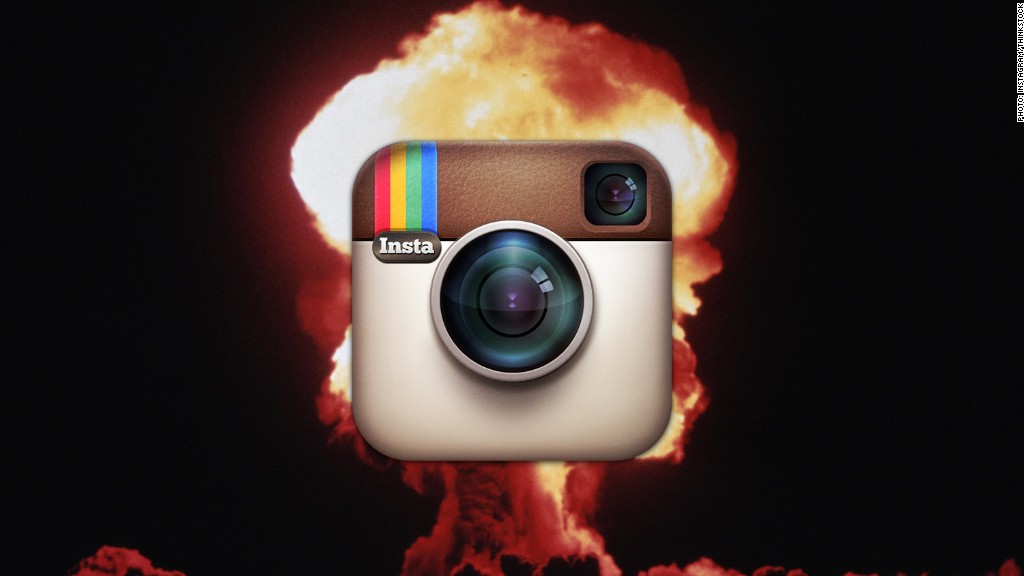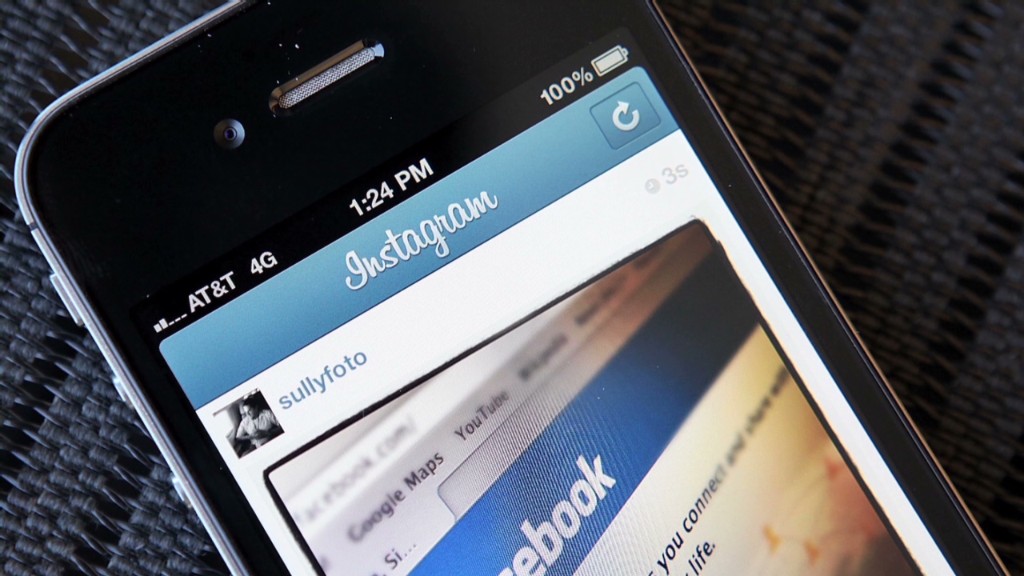
After Instagram changed its terms of service, giving the company commercial rights to user accounts and images, the site's users revolted. And rightfully so, because in a worst-case scenario, the new rules would allow the company to sell your images to outside parties to use however they please.
Instagram quickly backtracked, saying that's not what it meant and that it will "modify specific parts" of the new terms to make its intentions clearer. Its aim appears to be to incorporate your personal information into sponsored posts, along the lines of what Instagram's parent company, Facebook (FB), already does with its Sponsored Stories ads. Those ads pull in users' profile photos for messages promoting brands that users have chosen to "like." (Instagram operates independently from Facebook -- for now -- and the two sites have their own, separate terms of service.)
The wording of its terms gives Instagram wriggle room to change its mind, but for now, launching into a full-scale panic seems unnecessary.
But if you're concerned about corporate overlords getting their money-grubbing hands on your creations, there are some steps you can take.
Set your account to private: Instagram reiterated on Tuesday that private accounts will remain private. That means your photos can only be seen by the people to whom you've granted access. If you're bothered by strangers viewing your pics, a private account is the way to go.
What a "private" account won't do, though, is entirely opt you out of Facebook's advertising. Instagram will still be able to use your data in targeted commercial messages shown to your friends and followers.
If you're bothered by the idea of someone making money off your creative work on Instagram, that a different issue. You're using a free service, and as Instagram said Tuesday in its blog post: "From the start, Instagram was created to become a business."
If that's not a tradeoff you're willing to accept, the best move may be for you to stop using Instagram altogether.
Back up your data: OK, you've decided to ditch Instagram. That might be a bit extreme, but it's understandable. The first thing you should do before you wipe out your account is to copy all those snapshots documenting the last year or two of your life.
Right now, you have two options: Instarchive and Instaport. Both services will have you log in using Instagram's API (a tool that gives other sites access to Instagram's data) and automatically download your photos as a compressed .ZIP file. Instaport appears to be overloaded by the number of backup requests at the moment and isn't working, but it promises to let you export your images directly to another service in the future.
Either way, once you've backed up your year's work, you can entirely erase your photo trail from Instagram's servers. That's the nuclear option. Your photos will be "removed permanently and will not be recoverable," Instagram says.

Use another photo service: Depending on your needs, there are plenty of choices. Just want a simple way to store your own photos? You can use Facebook (warning: it owns Instagram), or any of the other, myriad photo storage sites out there. On smartphones, Tumblr's Photoset app is a dead simple way to upload your images into easy-to-digest albums.
Wanna use some filters? Try Twitter. The infrastructure of Twitter isn't exactly ideal for sharing your images and viewing the work of others, but its just-launched filters are impressive. You could also just go back to using Hipstamatic. (Question: Is anyone really going back to using Hipstamatic?)
If you like the social aspect of Instagram, you can try and convince your circle of Instagram friends to set up shop on Mlkshk, which falls somewhere between Instagram and Pinterest. It has the social structure of Instagram, but users tend to post random images they find on the web. It does have solid mobile apps, though. Maybe if enough Instagram refugees embrace the site, they can help turn it into something else.
There's also Path. Path is a beautifully designed, mobile-facing social network that crafted itself around the idea of intimacy and privacy. Only your friends can view your feed, and there's a limit to how many friends you can have (currently 150). And yes, it's got snazzy photo filters!
But here's the catch: everything you do is tracked. It's impossible to view a photo or profile without someone knowing you've done so. It makes you feel creepy for social media stalking. (And don't act like you're above that. We all do it.)
Your best bet, ultimately, is probably to start using Flickr. It's made for photographers. It respects copyrights. It has a great mobile app -- upgraded just last week by parent company Yahoo (YHOO) -- plus powerful options for managing, viewing, and exporting images. It has some of the same social framework as Instagram, and it's got filters.
No, it isn't quite as simple. But it's a great mobile experience that will cause you the least overall grief.
How deep down the anti-Instagram rabbit hole you choose to go is up to you. For now, the policy change doesn't appear to be the end of the world, but even if the Instagram Apocalypse isn't really the Apocalypse (yet), it doesn't hurt to be prepared.
Updated: An earlier version of this story said Flickr lacked filters. They were added earlier this year.

